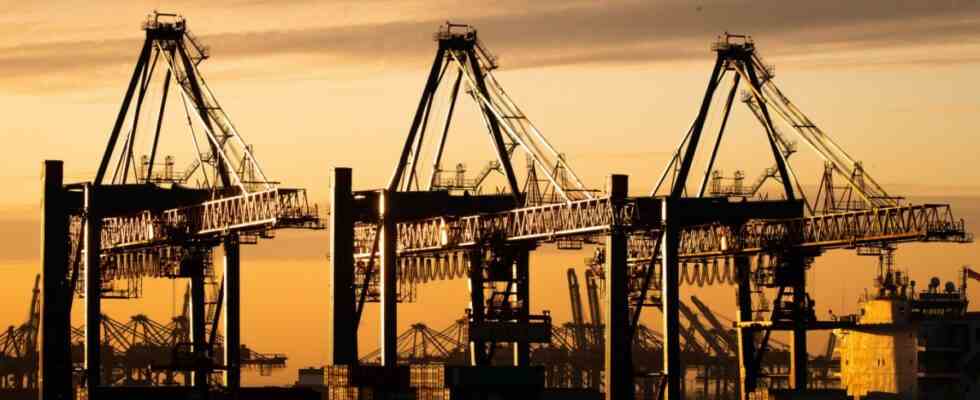The decision to invest Cosco in a terminal in the port of Hamburg is a stress test for the traffic light coalition in Berlin. The federal cabinet voted on Wednesday to limit the Chinese state-owned company’s stake in the operator of a Hamburg port terminal to a maximum of 24.9 percent instead of the agreed 35 percent. However, several ministries made it clear that they did not agree with the content of the decision pushed by Chancellor Olaf Scholz (SPD).
The Foreign Office also formally clarified the dissent and brought a memorandum to the cabinet that assessed the move as a dangerous expansion of China’s influence. “On behalf of the Federal Foreign Office, I expressly point out the considerable risks that arise when elements of the European transport infrastructure are influenced and controlled by China – while China itself does not allow Germany to participate in Chinese ports,” the agency quoted Reuters as saying from the note. China has shown that it is willing to use economic measures to achieve political goals. “In this respect, the acquisition of the container terminal not only has an economic, but above all a geopolitical component,” it said.
According to Reuters, the minutes led by the FDP-led ministries and the Economics Ministry led by Robert Habeck (Greens). The Federal Ministry of Finance spoke out in favor of reforming the Foreign Trade Act. According to a letter to the head of the Chancellor’s office, Wolfgang Schmidt, which the dpa agency quoted, an amendment would have to be examined and implemented “promptly”. In it, the participation of the Chinese investor is described as a “fatal economic and geopolitical signal”.
Chancellor Scholz had the criticism rejected again. Limiting Cosco’s stake to 24.9 percent “ensures that it is by no means about strategic influence and strategic control,” said a government spokeswoman. Scholz had pushed through Cosco’s participation against the warnings of several ministries and also the Federal Intelligence Service.
Cosco’s influence should be limited
According to the law, the Federal Cabinet must decide whether a ban on participation or conditions are to be imposed. The Chancellery decides whether the topic is even on the cabinet’s agenda. Scholz thus had an effective means of pressure in his hand. Had the cabinet not made a decision, the already agreed 35 percent stake in Cosco would have been automatically approved by the end of the month. The ministries involved therefore spoke of an “emergency solution” when it came to the forced compromise.
With the now decided limit to 24.9 percent, the influence of Cosco is to be limited, the investor is not allowed to appoint anyone for the management. In addition, Cosco is prohibited from otherwise securing greater influence, such as contractually agreed veto rights.
The decision was supported by the Hamburg Senate, as well as by the city’s second mayor, the Green Party, Katharina Fegebank. “The question of how Europe, like Germany, will deal with China in the future and the concern about growing dependencies and influence is one that will not be decided on this issue,” she explained. Katharina Dröge, the leader of the Greens parliamentary group in the Bundestag, said: “Those who glorify this investment as a purely economic project have learned nothing from the Russia policy of the past decades.”
What does Scholz’s approach and the open resistance of the Greens and FDP say about the working atmosphere in the coalition? The government spokeswoman only said on Wednesday: “A cabinet decision was made.”

